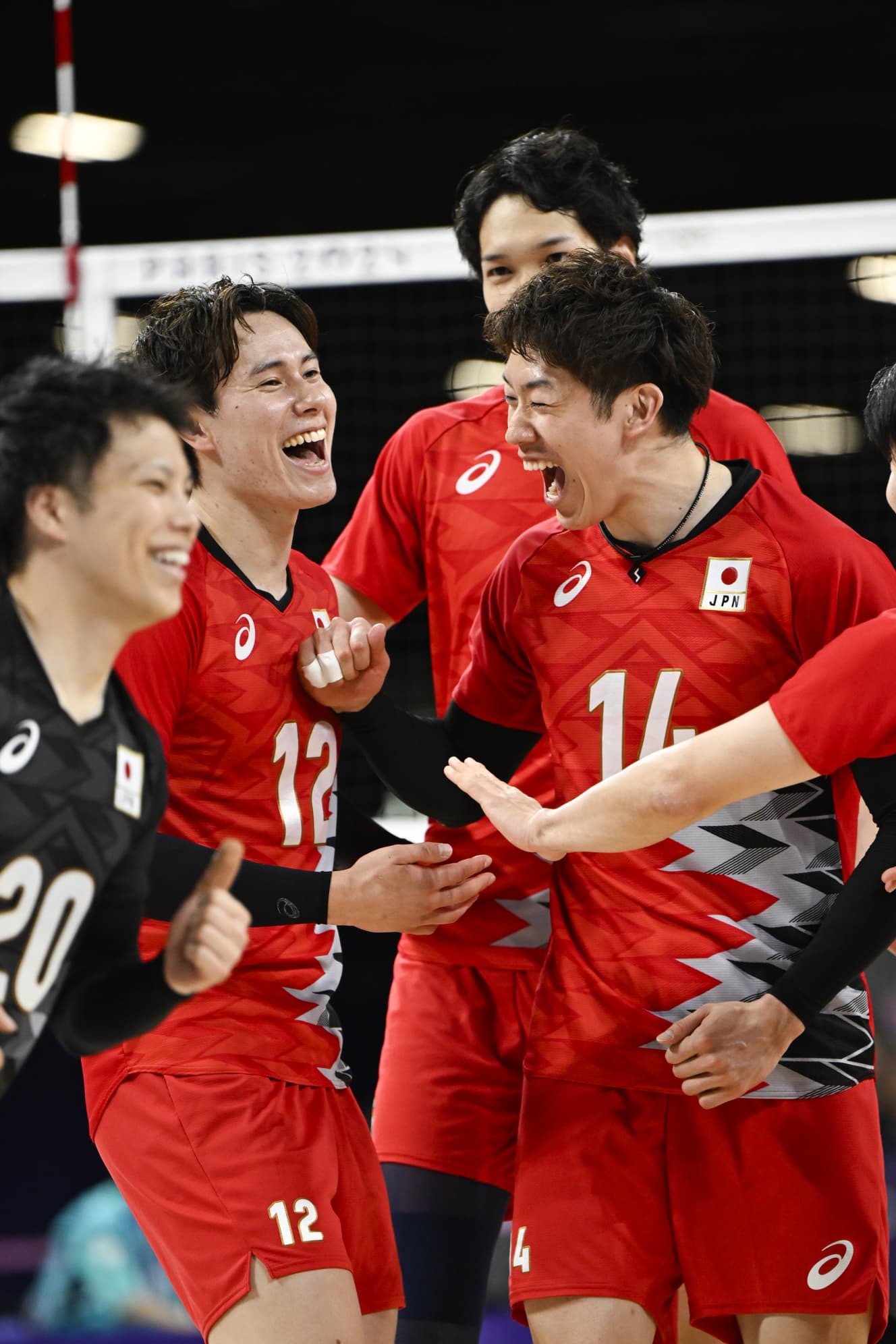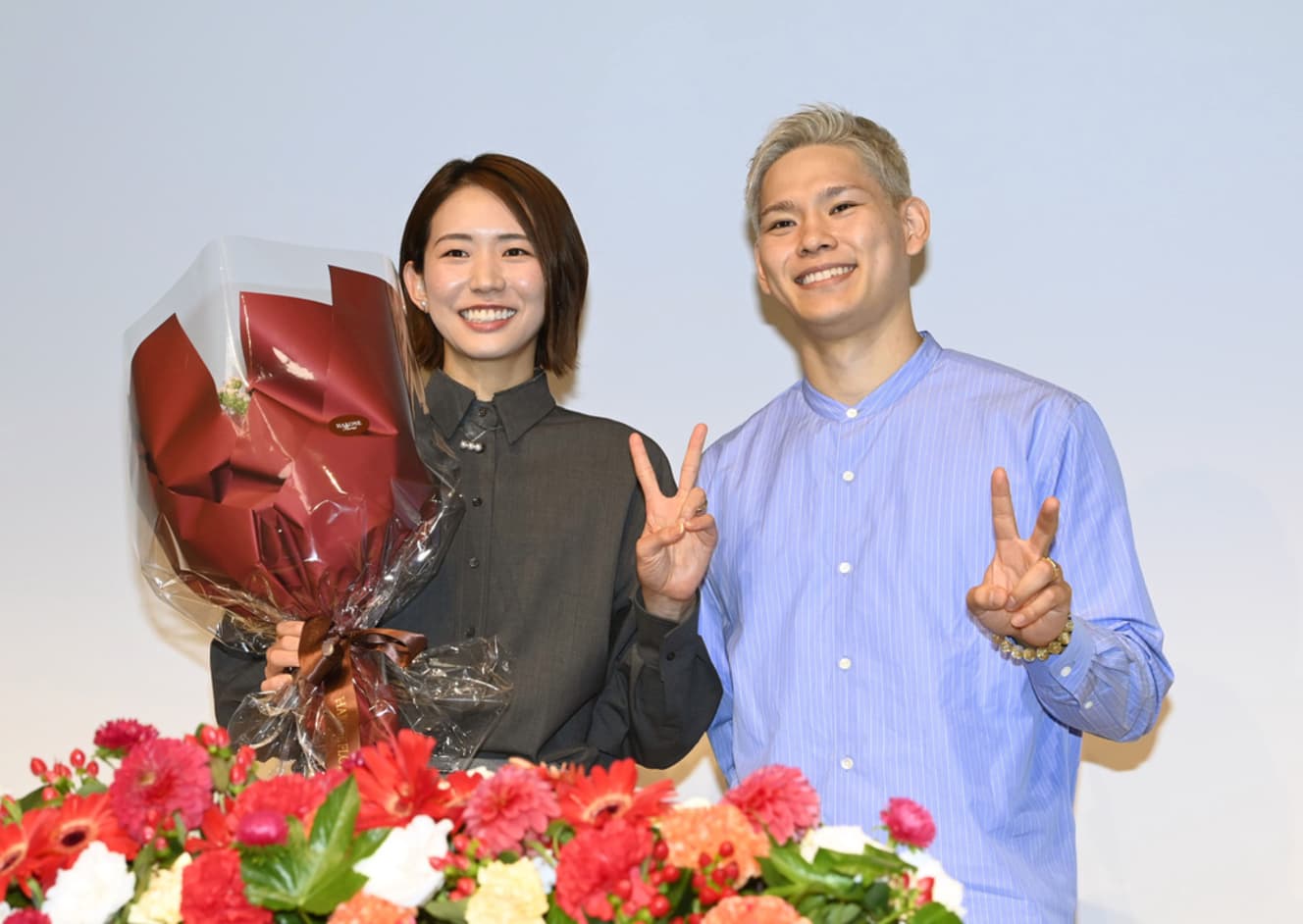Yuki Ishikawa and Ran Takahashi’s Rising Popularity Highlight Financial Issues for Japan Volleyball Association

Although they didn’t win a medal at the Paris Olympics, the popularity of the Japanese men’s volleyball team was outstanding during the tournament. Tickets for the men’s volleyball preliminary rounds were sold out before the opening. Despite the Olympics being held overseas, the venue was buzzing with cheers for Japan during the Japanese men’s matches. At the Nations League (June 2023, France round), they defeated the strong Brazilian team for the first time in 30 years, raising expectations for a gold medal.
Currently ranked 6th in the world, Yuki Ishikawa (28), who has been a key player in the top European Italian league for 10 years, and Ran Takahashi (22), who has surpassed 2.7 million followers on Instagram, are at the center of the rising popularity. In May, Takahashi announced a surprise joining of the Suntory Sunbirds Osaka, who will participate in the SV League starting in October. At the press conference, the team’s General Manager Keisuke Kurihara did not disclose the exact salary for Takahashi but proudly stated, “He can buy a car and a house. It might be difficult in Tokyo, but maybe two houses. The offer is not inferior to other sports.” Despite this, the Japanese volleyball world is troubled by a certain problem. An evening newspaper reporter reveals this issue.
“That is the lack of funds at the Japan Volleyball Association (JVA). The representative players were in business class when going to the Paris Olympics, but it seems they returned in economy class. Also, the players had to stay in the difficult conditions of the athletes’ village throughout.”
Shunichi Kawai (61), who was appointed JVA president in 2022 and is now in his second term, initiated reforms to enhance the brand value of Japanese national players. These included upgrading flight seats from economy to business class for European and South American tours. However, in April this year, Kawai made comments regarding the JVA’s financial situation. According to the evening newspaper reporter:
“President Kawai said, ‘Frankly speaking, we are in the red. I didn’t expect it to cost this much.’ Looking at JVA’s financial report for the fiscal year 2023, the operating revenue is about 3.5 billion yen, while operating expenses exceed it by about 300 million yen. Currently, the JVA receives approximately 1.146 billion yen in sponsorship support from 27 companies and aims to increase this to at least 32 companies and 1.5 billion yen over the next four years leading up to the Los Angeles Olympics. It seems they hoped that winning a medal at the Paris Olympics would make this dream a reality.”
During the Paris Olympics, the president himself actively appeared on TV as part of a sales activity, but the pre-tournament plans ended up as mere dreams because neither the men’s nor women’s teams won medals.
Even without benefiting from the Olympic boom, is there no way to generate revenue domestically? There is a unique issue within the volleyball world.
“Every year, the domestic top league, which starts in the fall (renamed the SV League from October), schedules its activities until May of the following year. Even if they want to schedule a Japanese national team match during the league, the rule prohibits calling up players from the league during its season. Unlike football, it is extremely difficult to host national volleyball matches domestically” (volleyball reporter).

Let’s compare this with soccer at the Paris Olympics. When hosting a Japan national football match domestically, the revenue system is structured so that the Japan Football Association (JFA) receives at least 300 million yen per match from entry fees and TV broadcast and streaming rights. Additionally, regarding financial status, the JFA updates sponsorship contracts every two World Cups. Knowing the scale of the most recent update in March reveals how small the JVA’s scale is.
“The JFA is supported by a massive sponsorship deal worth 35 billion yen over eight years. The major advertising agency (Dentsu) that intermediates this contract receives a margin of about 10-15% from each sponsor, maintaining a mutually beneficial relationship. Additionally, Dentsu pays over 4 billion yen annually in sponsorship fees to the JFA” (evening newspaper reporter).
The massive sponsorship fee of 35 billion yen is paid in installments. This is why other sports organizations envy the JFA, saying, “The JFA doesn’t struggle with money.” The evening newspaper reporter reveals:
“President Kawai is well aware of the situation in the soccer world and has been considering many measures, such as whether a paid Red-White match for volleyball representatives could be organized, but so far, nothing concrete has materialized.”
Thus, the key is how to energize the domestic league. The SV League, which starts in October, will begin with 10 men’s and 14 women’s teams. The chairman responsible for running the league will be Masaaki Okawa (66), who has been involved in league operations since 2022 and has served as an executive director of the J-League and chairman of the B-League. He was also the “right-hand man” of Saburo Kawabuchi (87), who reformed Japan’s soccer and basketball leagues. A JVA official explains:
“The SV League aims to be fully professional in the future, and it is a league that currently combines amateur and professional teams. Each team is required to increase their annual revenue to 400 million yen by the 2026 season, and to over 600 million yen thereafter. Failure to achieve this may result in the inability to obtain a license to become a professional club.”
In J1 soccer, the average annual revenue for clubs in 2023 was 5.399 billion yen. The SV League’s initial goal is to reach a scale similar to that of J3, which has an average annual revenue of 655 million yen.
Yuji Nishida (24) of Osaka Blue Thunders (formerly Panasonic Panthers), who played a key role in the Paris Olympics and announced on social media that he would take a break from the national team, shares his thoughts on the excitement in the Japanese volleyball world:
“When it comes to domestic leagues, spectator attendance suddenly drops. This has been a recurring issue. I think the SV League, which starts in October, is a last chance.”
With players like Nishida, Takahashi, and Ishikawa, who fans are eager to see, it’s crucial to avoid letting this opportunity go to waste. The SV League, starting in October, aims to achieve explosive popularity similar to the J-League, which began in 1993.
PHOTO: JMPA (1st photo) Kyodo News (2nd photo)